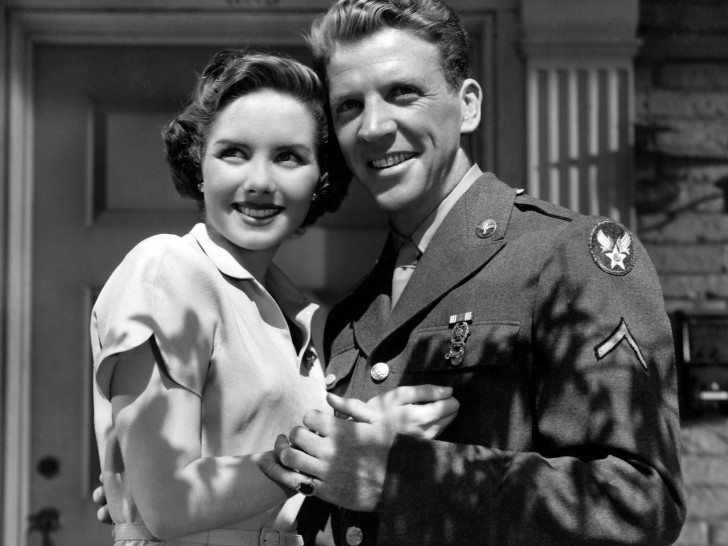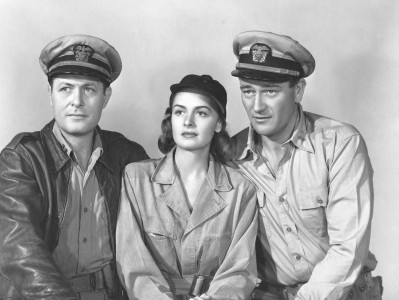
When Willie Comes Marching Home
The Battle of Midway
Given the rare chance to direct a straight comedy – a genre he hadn’t worked in since his Will Rogers films in the 1930s – Ford attacked this WWII homefront farce with evident glee, filling almost every frame with pratfalls, sight gags and sprawling brawls as he satirizes small town hysteria, pinpointing the fevered moment when patriotism becomes paranoia. Punxatawney, West Virginia is portrayed as a stereotypical haven for a narrow-minded, easily excitable townsfolk, exemplified by William Demarest – in the first of two films he made with Ford – as the suspicious, cantankerous father of Dan Dailey’s hapless soldier.
-
The Battle of Midway
Directed by John Ford.
US, 1942, 16mm, color, 20 min.
As chief of the Field Photographic Branch, which reported to the Office of Strategic Services – the precursor to the C.I.A. – during WWII, Ford made films for the internal use of the government and some, like The Battle of Midway, for the general public. Unlike anything that had been seen on movie screens before, Ford’s short documentary captured the incredible chaos and terrifying scope of the battle in full color in a stunningly successful bid to raise American awareness and patriotism for the war effort.
















